- Home
- Paul Christopher
The Templar Cross Page 7
The Templar Cross Read online
Page 7
“Interesting,” said Holliday. “It would appear that Mr. Abu Ibrahim leads a double life.”
“He didn’t buy that selling knickknacks,” said Rafi as the valet closed the door.
Faraj began to sing to himself.
“Stor-y, for-me? I never realized just how much I loathed Lindsay Lohan,” muttered Rafi.
The Citroën moved off.
Holliday tapped Faraj on the shoulder.
“Follow!”
Faraj, still singing, followed.
8
They followed the big Citroën east on the Shari 26 July to the Corniche Road along the long shallow crescent of crowded white sand beaches. On the city side of the road there were rows of bright white high-rise hotels built like a protective wall hiding the crumbling eighteenth- and nineteenth-century buildings of Old Alexandria.
At first Holliday worried that the gift shop owner would spot them in his rearview mirror but he quickly realized just how many of the bumble-bee taxis were on the road, all perfectly interchangeable, all black and yellow, all the same Soviet-era vintage Ladas, all dirty, one as banged up and battered as another.
Eventually the Corniche and the ramparts of resort hotels ran out and they continued west on the Shari al-Gaysh, a ten-lane divided highway that continued along the water, then veered south as they reached the oddly named Miami Beach district. The road dropped down to two lanes and the beaches weren’t quite as white or quite as crowded, with stacks of green plastic lounge chairs piled up and waiting to be rented. There was another crop of slightly less sumptuous hotels along Montaza Beach, and finally a welcome swatch of empty green marshland opposite the beach at El Maamora.
“Where’s our man going?” Rafi asked, looking out the grimy side window of the car. Farther out on the water they could see pleasure boats and the occasional brightly painted fishing trawler riding easily over the moderate waves. The sea was benign as a postcard photo, rolling calmly onto the beach in peaceful tumbling waves.
“Who knows?” Holliday said. “We keep on going the way we’re going, we’ll wind up at the Suez Canal.”
“Suez?” Faraj said, turning around in his seat with his ever-present smile. “No. No. No Suez! Abu Qir, Abu Qir!”
“Abu Qir?” Rafi said. “I seem to remember there’s some sort of Roman ruins underwater there. Not much in the way of smuggling opportunities.”
“Horatio Nelson. Kiss me Hardy! Boom, boom, Napoleon!” Faraj said enthusiastically.
“What’s he going on about now?” Rafi said.
“This kid knows his history,” said Holliday, impressed. “Aboukir was where Nelson fought the Battle of the Nile and destroyed the French fleet, August first, 1798. Abu Qir is why the Rosetta Stone is in the British Museum, not the Louvre.”
“I’m an archaeologist, not a historian,” said Rafi.
“You’re just embarrassed because old Faraj here showed you up.”
“Yes, well,” said Rafi primly, “I can actually read the Rosetta Stone. Can you?”
“Touché,” Holliday said and laughed.
“Nelson was at Abu Qir two hundred years ago. What’s there now?” Rafi asked.
“As I recall it’s the home of the Egyptian navy, or a big part of it at least. A few frigates and a lot of fast patrol boats, Russian and Chinese mostly.” Holliday shrugged. “I think the Alexandria fishing fleet docks there as well.”
“Why would this Abu Ibrahim fellow want to be around the Egyptian navy?” Rafi asked. “The Israeli navy spends half its time chasing smugglers. You’d think Ibrahim would want to be anywhere else but where the navy hung out.”
“Who knows?” Holliday shrugged. “Maybe he’s enlisted sailors to smuggle for him.”
Abu Qir was effectively the eastern suburbs of Alexandria, a “village” of old Soviet-style apartment blocks, newer hotels along the water and the original, cramped town of tumbledown stucco-sided buildings crammed in between the old and the new. On the other side of the railway lines that split Abu Qir down the middle were the relatively modern naval base on the peninsula, the old fishing harbor beside it and at the south-eastern end of town the huge, ultramodern campus of the Arab Academy for Science, Technology and Maritime Transport.
Behind the fishing harbor was a large barren area of waste ground known as Lord’s Land. A single broad roadway, lined with more deteriorating slab concrete apartment blocks and old rusting sheet-metal warehouses, led down to the fishing harbor and the sea.
To the left a crumbling concrete quay ran past a yard filled with piles of steel pipe and stacks of oil drums. To the right was a line of rusting warehouses and a haphazard clustered school of small trawlers and other workboats at anchor or drawn up on the mudflats at the east side of the harbor. The air was thick with the stink of the tidal ooze and rotting fish. It was almost midday and the waterfront had a bleak, abandoned look.
The Citroën drove directly to the docks and parked on the quay opposite an ancient wooden-hulled tugboat moored with heavy lines fore and aft. Once upon a time the ship had been black and red with a white superstructure. Now it was simply filthy, dark with accumulated grime. Faraj parked the taxi behind a screening skip loaded with what looked like bags of fertilizer. The wooden nameplate above the wheelhouse door of the tug was in Arabic script.
“Khamsin,” said Faraj. He pursed his lips and made a whooshing noise.
“A Khamsin is a wind from the Sahara,” offered Rafi. “I think that’s the boat’s name.”
“Wind, yes,” Faraj said, nodding happily.
The trunk of the Citroën popped open and the man in the white shirt got out of the car. He went to the trunk of the big sedan and lifted out an old-fashioned briefcase. He crossed the quay to a gangplank leading to the tug and stepped across it quickly. He dropped down onto the deck, walked aft to the companionway ladder and climbed up to the wheelhouse. It didn’t look as though there was anyone else on board. The man opened the wheelhouse door and disappeared inside. Two minutes later he reappeared without the briefcase, climbed down the companionway ladder and went back across the gangplank to the Citroën. He got in, started the engine and drove off, heading farther along the quay.
“Follow?” Faraj asked.
Holliday turned to Rafi.
“Well?”
“I’d love to see what’s in that briefcase,” said Rafi.
“Me too,” Holliday said.
“Follow?” Faraj asked again.
Holliday shook his head.
“Wait,” he instructed.
“I wait. Certainly, excellent,” their young driver said as he nodded. He picked up the newspaper from the seat beside him, leaned back and dropped the paper across his face. Holliday and Rafi climbed out of the taxi and crossed the pier to the tugboat gangplank.
“What if there’s somebody else on board?” Rafi asked.
“We’ll cross that bridge when we come to it,” answered Holliday. “But first we cross the gangplank.”
They crossed the gap between the pier and the tugboat, oily water lapping sluggishly below them. They reached the main deck and paused, listening for any sounds from behind the bulkhead doors directly in front of them. There were three doors and three portholes, the portholes covered by so much grime that they were almost opaque. There was a companionway stair leading to the deck below and the steps leading up to the wheelhouse. Both the deckhouse and the wheelhouse-bridge above it were made of wood, probably mahogany or teak, covered by so many coats of white paint the planking was almost invisible. The filth laid over the paint had turned everything a greasy gray color. A heavily overpainted cast iron builder’s medallion read Neafie, Levy & Co. Philadelphia—1906.
“This thing is more than a hundred years old,” said Rafi, staring at the oval plate bolted to the deckhouse.
“They built to last back then,” said Holliday. “A thousand storms, a couple of world wars. The British were still occupying Egypt when she was built.”
Rafi was peering through one of the g
rimy portholes.
“Looks like the galley,” he said. “Nobody there.”
Holliday nodded and turned toward the companionway leading up to the wheelhouse. Rafi followed close behind him. They both turned and looked toward the dock. Still deserted. A noon-time siesta in the heat of the day. The sun blazed down and Holliday felt sweat running down in itchy streams under his shirt. The man in the Citroën had looked cool. The Citroën, unlike Faraj’s taxi, was almost undoubtedly air-conditioned.
They reached the wheelhouse and stepped inside. The interior was almost primitive. There were slatted wooden scuppers on the floor to let water drain, an amateurish welded aluminum dashboard with a few engine controls and a six-spoked mahogany and brass wheel that looked as though it might have been the original. There was a simple engine room telegraph attached to the right-hand bulkhead marked Full, Half, Slow and Stop. A tall iron braking handle came up from the floor to the right of the ship’s wheel. There was a marine radio bolted to a bracket in the roof above the front windscreen, a black plastic compass in a glycerin float, a modern GPS unit and an echo sounder. For a hundred-foot-long vessel it was definitely seat-of-the-pants navigation.
“Whoever drives this bus is either very good at his job or he’s insane,” said Holliday.
“Or both,” commented Rafi. There was a single bulkhead door at the rear of the wheelhouse. It was unlocked. Holliday and Rafi stepped through into a combination chart room and captain’s cabin. The briefcase was sitting on a small table beside a porthole. Holliday snapped the latch and pulled it open. It was filled with nautical charts and nothing else.
“Looks like he’s getting ready to go somewhere,” said Holliday.
“Where?” Rafi asked.
Holliday opened one of the folded charts and laid it out on the table.
“As-Sallum to Al-Iskandariyah,” he said, reading the chart legend. “The scale is one to three hundred thousand. About a hundred and forty miles from Alexandria. Looks like some sort of harbor.”
“As-Sallum is also the last place anybody heard from Peggy and the expedition,” said Rafi. “It was their last staging point before crossing into Libya. It’s right on the border.”
“It can’t be a coincidence,” said Holliday. He folded the chart again and put it back in the briefcase. He closed and latched the briefcase and put it back exactly where he’d found it. “Let’s see if we can find out why our knickknack salesman is going to this As-Sallum,” he said.
They left the wheelhouse through the harbor-side door, screening themselves from anyone on the pier. They went forward on the main deck and then carefully down a lower companionway to the foc’sle, listening as they descended. The only sound was the clicking hum of an automatic bilge pump somewhere below and the faint lapping echo of small waves against the hull.
The foc’sle consisted of two small cabins, six pipe berths against the port and starboard bulkheads, a small galley and a zinc-topped mess table with benches bolted to the floor. Dim pan lights dangled above them, throwing shadows everywhere. The ceiling was low, a forest of cables and conduits hanging on metal brackets. The stuffy little area had obviously been in recent use; there were photographs and pinups above the narrow berths and the unmistakable smell of fried onions in the air.
“No one home,” said Rafi.
“Let’s not stretch our luck,” answered Holliday, a nervous edge in his voice. Being belowdecks and blind to possible attack went against all his military experience, not to mention his basic survival instincts. “Five minutes more and then we’re out of here.”
They made their way aft down a narrow corridor and then stepped through a bulkhead door into a cargo area between the foc’sle and the engine room farther back. The cargo area was stacked with seventy or eighty long wooden crates. The crates were each secured with lead customs seals and stenciled with arcane numbers and letters. The only clue to their contents was a stenciled logo of a rearing horse and the word DIEMACO.
“All of a sudden I’m getting a bad feeling about this,” said Holliday.
“What’s DIEMACO?” Rafi asked.
“Die Manufacturing Corporation of Canada. They make machine guns.”
“Canada?” Rafi asked with a look of surprise.
“Sixth-largest exporter of small arms in the world. Bigger than Israel.”
“You’re kidding.”
“A billion dollars a year. Don’t let the maple leaves and maple syrup fool you. The Green Berets can trace their history back to the Devil’s Brigade, a Canada-U.S. commando unit. Nobody mentions it much these days, but it was Canadians from the Second Parachute Battalion who trained the Americans, not the other way around.”
“One history lesson after another,” Rafi said with a grin.
“Let’s open one of these up,” said Holliday.
There was a short pry bar on a shelf against the portside bulkhead. Holliday used it to twist off the wire customs seal, then slipped it between the crate and its stapled wooden lid. Inside the crate were half a dozen flat, neutral-colored hard cases. Holliday undid the clasps on the top case and opened it.
“Our man’s not smuggling stuff out of Egypt—he’s smuggling stuff in,” said Holliday, peering into the case. Inside, seated in custom-cut foam niches, was an entire weapons system. The weapon was sand-colored with an odd, flat surface texture.
“What is it?” Rafi asked.
“A Timberwolf sniper rifle. Dead accurate at four thousand yards. And I mean ‘dead’ accurate.”
“That’s more than two miles.”
“That’s right,” said Holliday flatly.
There were a dozen much smaller cases fitted into the ends of the crates. He took one of the small cases out and dug even deeper, coming up with a dozen or so parcels wrapped in heavy paper. He opened up one of the small cases. Inside was a squat, dead black handgun with a beavertail grip and a snub barrel shorter than his index finger. The entire gun fit into the palm of his hand.
“A Para-Ordnance Nite Hawg,” murmured Holliday. “Another Canadian company. Forty-five automatic.” He ripped the paper off one of the smaller packages. Boxes of ammunition. He slipped the handgun into the right-hand pocket of his jacket and stuffed half a dozen boxes of ammunition into the left.
“You get caught with a handgun in Egypt and we’ll both go to jail for a very long time.”
“We get caught by the bad guys without one and we could wind up dead,” responded Holliday. He stuffed the empty gun case and the torn paper from the ammunition package back into the wooden crate.
Suddenly there was an echoing metallic clang as the bulkhead door leading aft crashed open. A thin beardless man wearing a grease-stained light blue boiler suit stepped into the cargo hold, frowning and looking as though he’d just awakened from a nap. He blinked, surprised to find two strange men aboard the tug. He said something in a high, almost girlish voice.
“Maa fee shay jadeed?” Holliday couldn’t understand a word but the intent of the question was clear: Who the hell are you and what are you doing on my ship? The man reached into the deep front pocket of the boiler suit and tried to pull something out of his pocket. It looked to Holliday like an enormous Webley service revolver that was standard issue for the British Armed Forces from the Boer War onward. As the thin man hauled the heavy pistol up the front sight got hooked on a tear in the pocket and snagged.
Holliday barely hesitated. Heart beating wildly, adrenaline pumping frantically into his bloodstream, he swept up the steel pry bar from the top of the crate, took two steps forward and ripped a vicious curving swipe at the man’s head. The hooked end connected with the left temple with a wet crunching sound, stopping him in his tracks. The man shrieked, eyes bulging, and crumpled to the ground, his arm flung out, his hand still gripping the heavy revolver. He didn’t move.
Rafi stared down at the man in the boiler suit, horrified.
“Is he dead?”
Holliday bent down and took the Webley, just in case. He felt for a pulse in
the man’s neck. There was none. There was no visible blood but the side of the man’s head looked like a deflated balloon, the bones crushed like a soft-boiled egg.
“Yeah, he’s dead,” said Holliday with a sigh. He’d seen enough combat to know a corpse when he saw one.
“We’ve got to go. Now,” said Rafi urgently.
“We can’t,” answered Holliday, shaking his head. “Not yet.”
“What are you talking about!?” Rafi asked. “The longer we stay here, the more chance there is of our gift shop guy coming back!”
“That’s the point,” explained Holliday. “Up to now these people didn’t know we were onto them. We leave a dead body lying here it’s a whole new ball game.”
“What are you saying?”
“We get rid of the body.”
It took them almost half an hour and it was an object lesson in the concept of deadweight. They manhandled the limp, dragging corpse up the companionway stairs, arms and legs flopping, head lolling and banging gruesomely up each step. They brought him up on the windward side, the deckhouse shielding them from the pier. Out in the harbor brightly painted fishing trawlers bobbed easily in the shining water like a rustic postcard from the Mediterranean: “Arrived Abu Qir. Hotel not quite five-star, harbor wonderful, wish you could be with us. Love, Alice.”
Panting from their exertions, chests heaving, they reached the deck and stopped to catch their breath, the body hidden below the sight line of the gunwales of the old tug. Rafi peered over the side. Thick oily water banged listlessly against the scarred black hull. A rime of harbor muck covered the surface, a mixture of floating garbage, dead fish, plastic, and long dark mats of seaweed.
“Do bodies float or sink?” Rafi asked.
“They sink for a while but gasses bring them up eventually,” said Holliday.
“How long?”
“I don’t have the faintest idea.”
“Then we need something to weigh him down,” said Rafi.

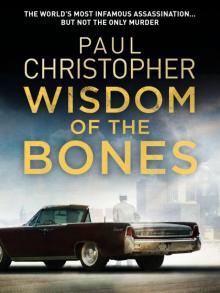 Wisdom of the Bones
Wisdom of the Bones The House of Special Purpose
The House of Special Purpose The Second Assassin
The Second Assassin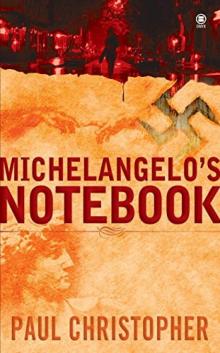 Michelangelo's Notebook
Michelangelo's Notebook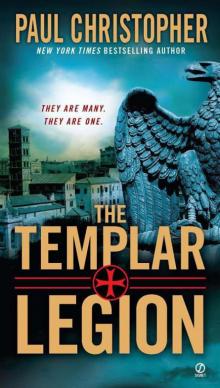 Templar Legion
Templar Legion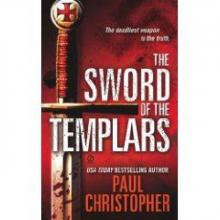 The Sword of the Templars t-1
The Sword of the Templars t-1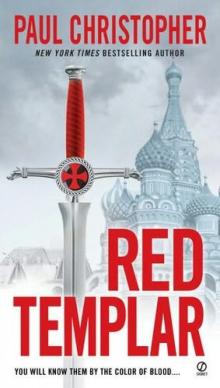 Red Templar
Red Templar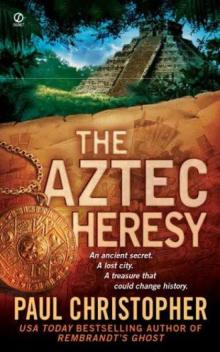 The Aztec Heresy
The Aztec Heresy The Templar Legion
The Templar Legion Rembrandt's Ghost
Rembrandt's Ghost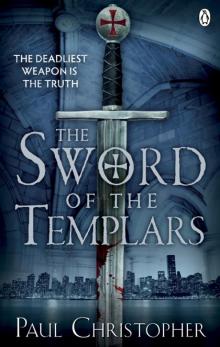 Sword of the Templars
Sword of the Templars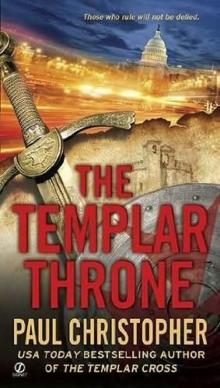 The Templar throne t-3
The Templar throne t-3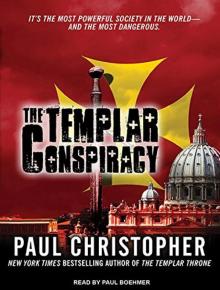 The Templar Conspiracy
The Templar Conspiracy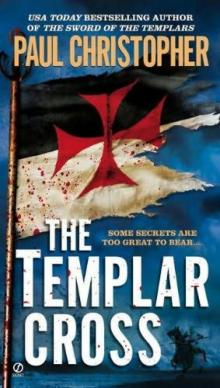 The Templar Cross t-2
The Templar Cross t-2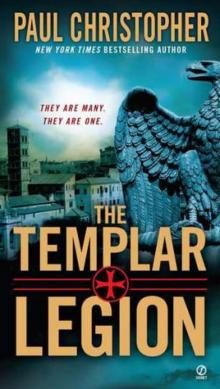 The Templar Legion t-5
The Templar Legion t-5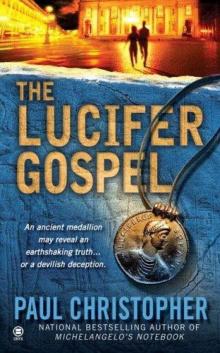 The Lucifer Gospel
The Lucifer Gospel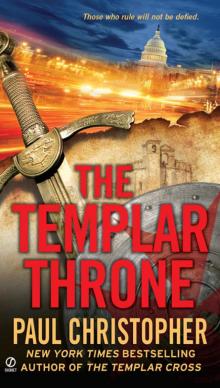 Templar Throne
Templar Throne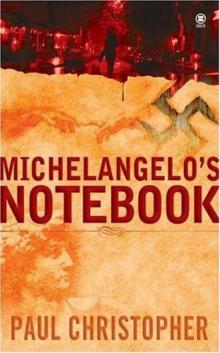 Michelangelo_s Notebook fr-1
Michelangelo_s Notebook fr-1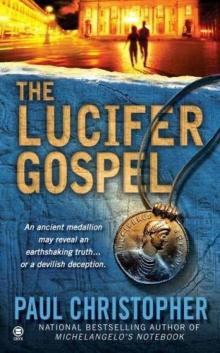 The Lucifer Gospel fr-2
The Lucifer Gospel fr-2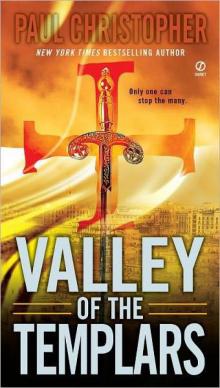 Valley of the Templars ts-7
Valley of the Templars ts-7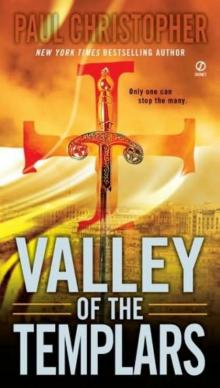 Valley of the Templars
Valley of the Templars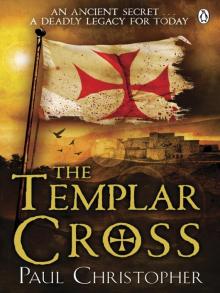 Templar Cross
Templar Cross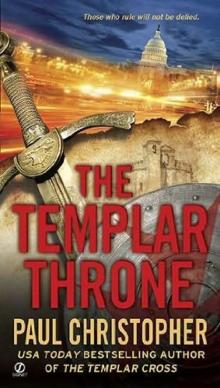 The Templar Throne
The Templar Throne The Templar Cross
The Templar Cross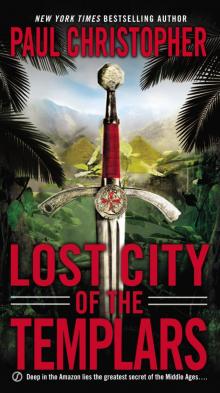 Lost City of the Templars
Lost City of the Templars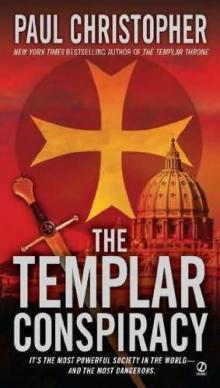 The Templar conspiracy t-4
The Templar conspiracy t-4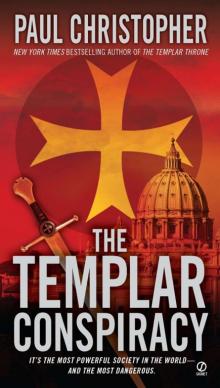 Templar Conspiracy
Templar Conspiracy